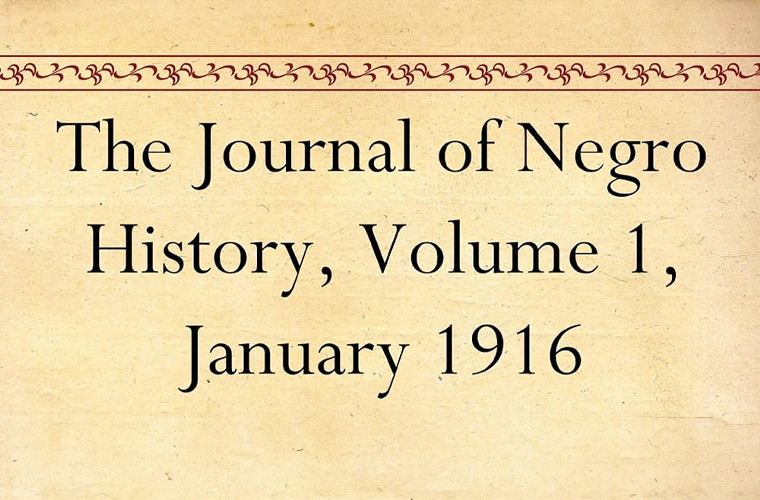The Journal of Negro History, now known as The Journal of African American History, has a rich and storied legacy in the academic world. As the official periodical published by the Association for the Study of African American Life and History, it has served as a cornerstone in the scholarly exploration of African American experiences, contributions, and struggles. This esteemed publication has not only provided a platform for rigorous research and critical discourse but has also played a pivotal role in shaping the narrative of African American history.
The journal’s evolution from The Journal of Negro History to The Journal of African American History reflects not only a shift in terminology but also a broader transformation in the field of African American studies. The title change signifies a more inclusive and expansive approach to the study of African American experiences, acknowledging the diverse and multifaceted nature of the subject matter.
Since its inception, the journal has been committed to fostering a deeper understanding of African American history through the publication of high-quality, peer-reviewed articles. Its dedication to excellence has been recognized through numerous awards, solidifying its reputation as a leading scholarly publication in the field.
One of the defining features of The Journal of African American History is its rigorous peer review process. Each submission undergoes thorough evaluation by esteemed scholars and experts in the field, ensuring that only the most insightful and well-researched work is presented to the readership. This commitment to academic rigor has contributed to the journal’s standing as a trusted source of scholarship in African American history.
The journal has been instrumental in showcasing a diverse range of perspectives and methodologies within African American historical scholarship. From archival research to oral history, from quantitative analysis to literary criticism, the journal has embraced a wide array of approaches, enriching the discourse and broadening the scope of inquiry within the field.
Furthermore, The Journal of African American History has been at the forefront of highlighting previously overlooked or marginalized aspects of African American history. By publishing groundbreaking research on topics such as gender, sexuality, class, and regional variations, the journal has contributed to a more comprehensive and nuanced understanding of the African American experience.
In addition to its scholarly articles, the journal has also featured insightful book reviews, providing critical assessments of new publications in the field. This review section has served as a valuable resource for scholars and students alike, guiding them toward significant works and offering thoughtful analyses of emerging scholarship.
The digital age has brought about new opportunities for the dissemination of knowledge, and The Journal of African American History has adeptly embraced these advancements. Through online access and digital archives, the journal has expanded its reach and accessibility, ensuring that its valuable content can be readily accessed by scholars, students, and enthusiasts around the globe.
As we look to the future, The Journal of African American History continues to play a vital role in shaping the trajectory of African American historical scholarship. Its commitment to excellence, inclusivity, and scholarly rigor positions it as an indispensable resource for all those engaged in the study and appreciation of African American history.
In conclusion, The Journal of African American History stands as a testament to the enduring significance and vitality of African American historical scholarship. Its evolution from The Journal of Negro History to its current iteration reflects not only a changing academic landscape but also a steadfast dedication to illuminating the richness and complexity of the African American experience. As it continues to thrive in the digital age, the journal remains a beacon of intellectual inquiry and a catalyst for advancing our understanding of African American history.

